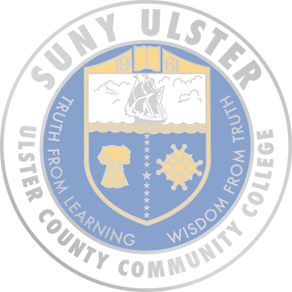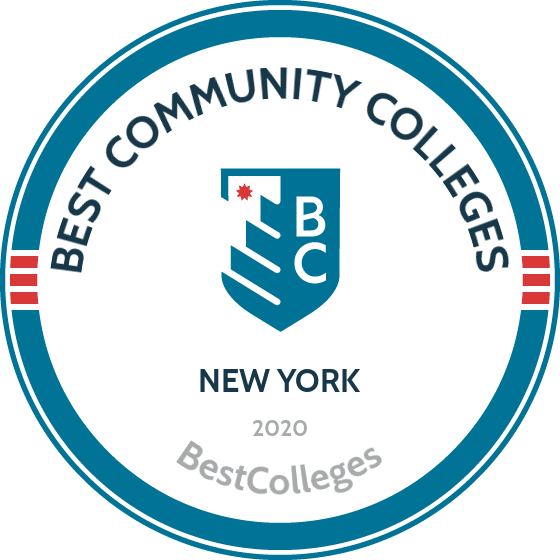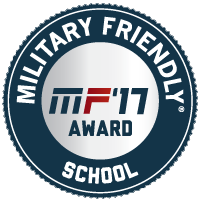Courses
220 courses found when searching within the Fall 2024 semester.
page = 3Computer Appli In Bus
BUS 171
Using the Microsoft Office suite of business applications for the PC, students learn how computers can aid the business decision-making process. The course introduces appropriate terminology and concepts using hands-on training. Applications include word processing, spreadsheets, and presentation software. The course only supports the use of Windows based Microsoft Office. Lab fee.
Legal Environment of Business
BUS 180
Students study the fundamental concepts, principles and rules of law and equity that apply to business activities. Legal theory is applied to commercial transactions. Topics covered include an introduction to the law and the legal system, the Uniform Commercial Code, contracts, sale of good, negotiable instruments, product liability, negligence, agency, bailment, torts, and employment law. This course is required for students in the Business and Entrepreneurship and Business: Accounting A.A.S. degree programs. It is not recommended for students enrolled in the transfer-oriented A.S. in Business Administration program.
Business Law I
BUS 201
This course provides an analysis of business transactions in the legal environment. Topics include an introduction to the history of modern commercial law, the courts, and the legal processes; detailed examination of the principles of the laws of contracts, including contracts for the international sale of goods (CISG); and consideration of related topics including product liability and business torts. Pre-requisite: ENG 101.
Business Law II
BUS 202
This is a comprehensive analysis of the principles of the laws of commercial paper, agency, partnerships, limited liability companies, corporations, and other forms of business ownership. Prerequisite: ENG 101.
Human Resources Management
BUS 203
Basic personnel processes involving the organization of work and jobs are covered. Topics include recruitment, selection, placement, and development of employees. The course examines the nature of work, the employment process, interviewing techniques, training methodology, performance evaluation, professional growth and development, motivation, human resources management, and management-labor relations. Pre OR Co requisite: BUS 115 or 161.
Market Princ & Practices
BUS 205
A study of the marketing field emphasizing the integrated managerial approach to marketing management is provided. The course features the marketing mix, channel management, consumer/industrial buying behavior, and marketing information systems. The case-study method and problem-solving exercises feature marketing costs, segmentation, decisions, and management methodology. Pre or Co requisite: BUS 161 or BUS 115.
DEISJ in the Workplace
BUS 208
The principles of diversity, equity, inclusion & social justice in the workplace have evolved from an emphasis on HR compliance to a strategic-level, organization-wide effort that has resulted in a positive impact in today’s organizational performance, including a renewed competitive advantage. This course provides an historical perspective along with an overview of the evolution of the management of DEISJ. Students will analyze the role that complex workplace networks of social structures and systems have played in the creation and perpetuation of the dynamics of organizational culture including power, privilege, oppression, and opportunity. During this course, students will analyze the efforts of local and national organizations in the areas of DEISJ, applying the principles of rights, access, equity, and autonomous participation to the efforts of these organizations.
Business Ethics
BUS 249
Business organizations are unique and powerful social entities whose conduct has enormous influence on the direction and results of our society. Therefore the values and particularly the ethical foundations of the business world hold utmost importance on our society's function. This course will explore the importance of business ethics and its relevance to the current corporate environment. Topics will include social responsibility, ethical decision-making, moral philosophies, ethical culture, and developing and implementing effective ethics programs. Prerequisites: ENG 101 and LIB 111.
Spreadsheets for Business
BUS 272
Students learn to recognize different classes of business problems that can be solved through the use of spreadsheets. Students learn how to design and develop a spreadsheet from a set of business requirements, apply financial functions, summarize data through the use of pivot tables, extract data from lookup tables, apply conditional logic to make decisions, and consolidate data from different spreadsheets. Lab fee. Prerequisite: BUS 171.
Intro to Chemical Dependency
CDC 113
This course addresses the historical, biological, psychological, and social aspects of alcohol, substance abuse, and addiction. Students will explore substance abuse in contemporary society, with an emphasis on the impact alcohol and other chemicals has on individuals, families, and the community.
Foundations- College Chem
CHE 100
Properties and structures of elements, compounds, and mixtures; the changes which these substances can undergo; the mole concept and basic stoichiometry; the simple gas laws; and the related mathematics, metric measuring system, and nomenclature required for the examination of these topics are covered in this non-laboratory course. Students may not use this course to satisfy a science requirement or elective. Students who want to go on to the traditional General Chemistry sequence (CHE 103 and CHE 104) should take CHE 101 instead of this course. Prerequisite: MAT 098 or higher with a grade of C or better.
Introductory Chemistry I
CHE 101
The essential facts, laws, principles, and theories of chemistry are presented in this course. Topics include fundamentals of measurement, the mole concept and stoichiometry, basic thermochemistry, kinds of matter, atomic theory, chemical formulas and equations, gas laws, and elementary molecular theory and bonding. This course requires use of a scientific calculator and purchase of safety goggles for lab use. This course is recommended for those wanting to go on to the traditional General Chemistry sequence (CHE 103 and CHE 104). Lab fee. Pre and/or Corequisite: MAT 110 or MAT115 or higher
General Chemistry I
CHE 103
Fundamental principles, concepts, and theories of chemistry are studied in this course: measurement, problem solving, laws of chemical combination, chemical nomenclature, stoichiometry, simple chemical reactions, the gas laws, the kinetic-molecular theory, thermochemistry, atomic structure, periodic properties, molecular structure, and theories of chemical bonding. The laboratory emphasizes the acquisition, analysis, and interpretation of quantitative data. This course requires use of a scientific calculator and purchase of safety goggles for lab use. 3 hrs. lect.; 3 hrs. lab.; 1 hr. recitation. Lab fee. Prerequisite: High School Regents Chemistry or CHE 101. Pre or Corequisite: ENG 101 and MAT 160 or higher.
Operating Sys & Utilities
CIS 116
Students will obtain a mastery of operating systems concepts and a foundation of the boot process in this broad background course. They will apply their skills to maintaining disks and files, and building and maintaining shell scripts/batch programs. Examples of the role, scope, and complexity of operating systems are provided. Effective use of utility software is emphasized. The course is taught using MS Windows and Redhat Linux software.
Oral Communication
COM 103
Students will explore theories of oral communication and develop practical skills. Analysis and organization of content are emphasized, along with speech performance skills. Prerequisite or corequisite: ENG 101.
Public Speaking
COM 105
Students gain practical experience in speaking situations, group discussion, and informative and persuasive presentations. Emphasis is on confidence-building through extemporaneous delivery and through audiovisual resources. The public speaking course is designed to develop the ability to effectively present a variety of speech types. Exercises in voice production and diction and informal presentations will develop confidence and fluidity in public speaking. Through lectures, class discussions, projects and assigned reading, students will become familiar with important theories of communication. Research, preparation, and presentation of several formal speeches will allow the student to demonstrate proficiency in communicating complex ideas clearly and effectively. Prerequisite or corequisite: ENG 101.
ResolveConflict/Communication
COM 123
This is a three (3) credit course that focuses on understanding and constructively dealing with conflict as it manifests itself in various settings. Students will study and critically analyze the role of language in conflict and conflict resolution through a variety of deep readings to form personal, professional and cultural assessments. Students will examine their own attitudes and values regarding conflict. Through experiential learning, including structured activities such as record‐keeping, role play, and processing, students will study the rationale for conflict resolution and examine a variety of approaches and skills for dealing with those conflicts. Emphasis is placed on effective communication. Pre and/or Corequisite: ENG 101.
Media and Society
COM 124
The relationship between media and society has evolved with technology. The objective of this course is to trace the history and development of the media, to explain their evolution and significance from the printing press to the advent of the Internet, and to examine how the media can act both as a mirror and a model of culture. The course will also explore the various issues used by modern media to understand themselves and their relationship to society and to define job opportunities, roles, and responsibilities for those interested in pursuing a career in media. Prerequisite or corequisite: ENG 101. Recommended prerequisite: COM 103.
Oral Interpretation
COM 203
This course is designed to help the student develop into an effective interpreter of literature by broadening their interests and tastes in literature, by allowing them to learn more about themselves and the process of communication through experiences in reading from various sources and genre, by encouraging critical listening and evaluations of individual and group presentations, by increasing technical skills and by providing opportunities for original, creative performance, via the medium of reader’s theater. Prerequisite or Corequisites: ENG 101
Journalism-Podcast,Blog,Newsl
COM 210
An introduction to the evaluation, gathering, and writing of multimedia news. The objective of this course is to introduce students to the process and techniques of journalism that will focus on the writing and editing of a variety of news stories, scripts for podcasts, blogs, and newsletters.
page = 3




